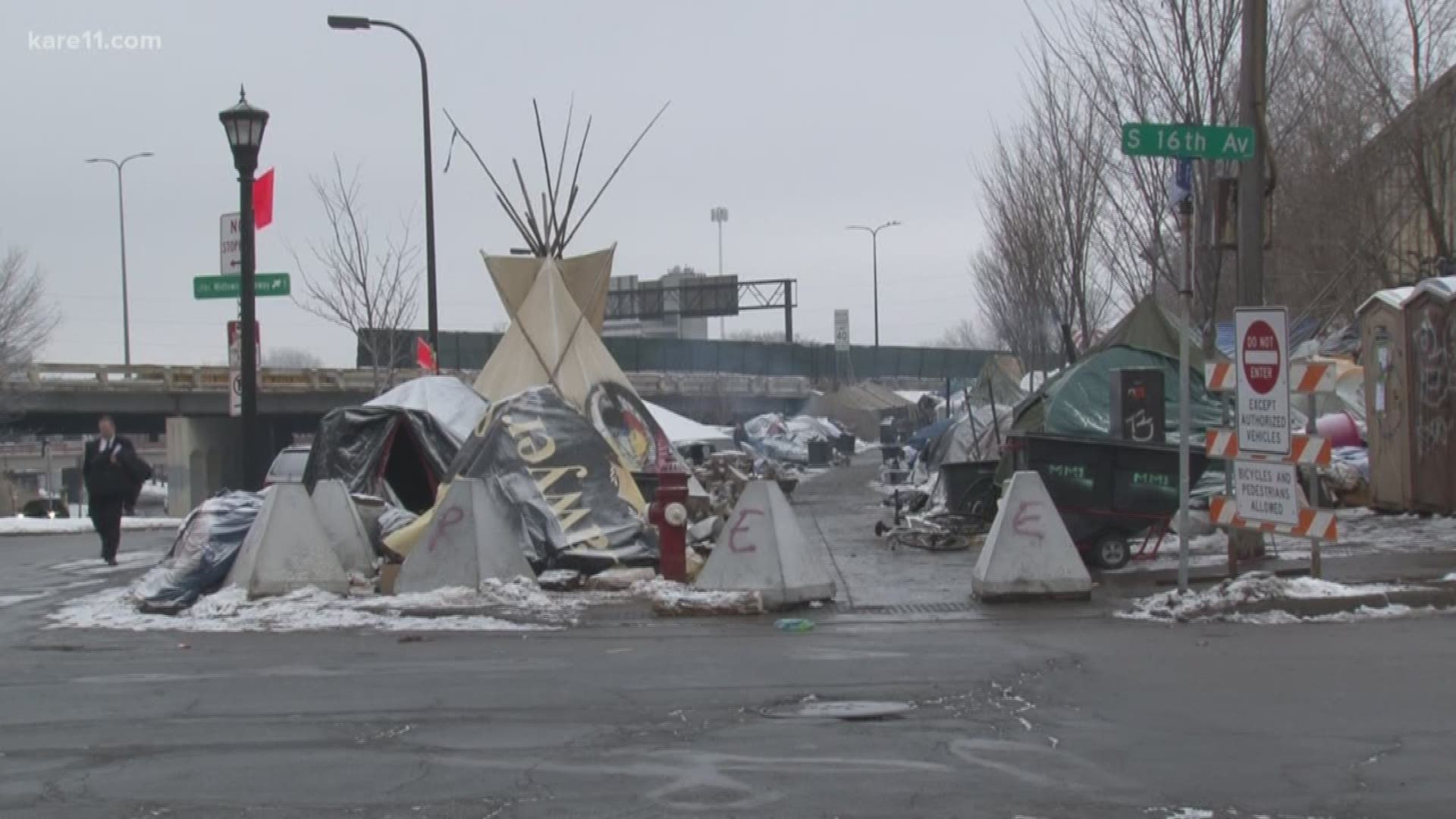MINNEAPOLIS -- It's the beginning of the end for a homeless encampment that has flourished for months in a busy intersection in the south side of the city.
People will begin to move from the camp to a nearby heated shelter dubbed the Navigation Center on land owned the Red Lake Nation.
"The Navigation Center is a positive change for the people there, one where they can have warmth, security, food and access to services where they can overcome the issues they’re faced with there," Red Lake tribal secretary Sam Strong told reporters.
The tent city has been plagued by drug overdoses and fires, often started by residents trying to cook or warm themselves. On Monday, some of the inhabitants of the camp started a bonfire and then piled coats and jackets on it, which fed the blaze.
Eventually a police officer spotted it and summoned Minneapolis firefighters to extinguish it.
Those fires won't be allowed at the Navigation Center, but people will have access to social services and connections to more permanent housing.
The population of the encampment, along Franklin Ave. and Hiawatha Ave in south Minneapolis, grew to as many as 300 at one point during the fall. A significant portion of the residents are connected to the nearby Little Earth Native American community and other Indigenous communities.
So far Hennepin County, tribal relief agencies and the City of Minneapolis have successfully moved 66 adults and 15 children out of the camp and into supportive housing programs.
"I’m just proud to partner with our Native American community. They’ve been phenomenal throughout," Mayor Jacob Frey remarked.
"The navigation center provides the structure and warmth, as well as the foundation from which we can allow people to get further assistance down the road."
There were tense discussions between various groups Sunday at a planning meeting at the American Indian Center, but Strong said that's to be expected with the issues in the balance for the high mobile population that has been drawn to the encampment.
"When you’re dealing with hard problem like homelessness and drug addiction, there’s going to be a lot of emotions involved with that. There’s a lot of hurt people out there, and a lot of people that want to help."
A man who called himself "Dee" emerged from the camp Monday to say he's glad it's going away.
"This isn't normal life, and we need to bring people back to normal, get them connected to case workers and case managers," he said. "A lot of these people have never had anyone help them through the system."

